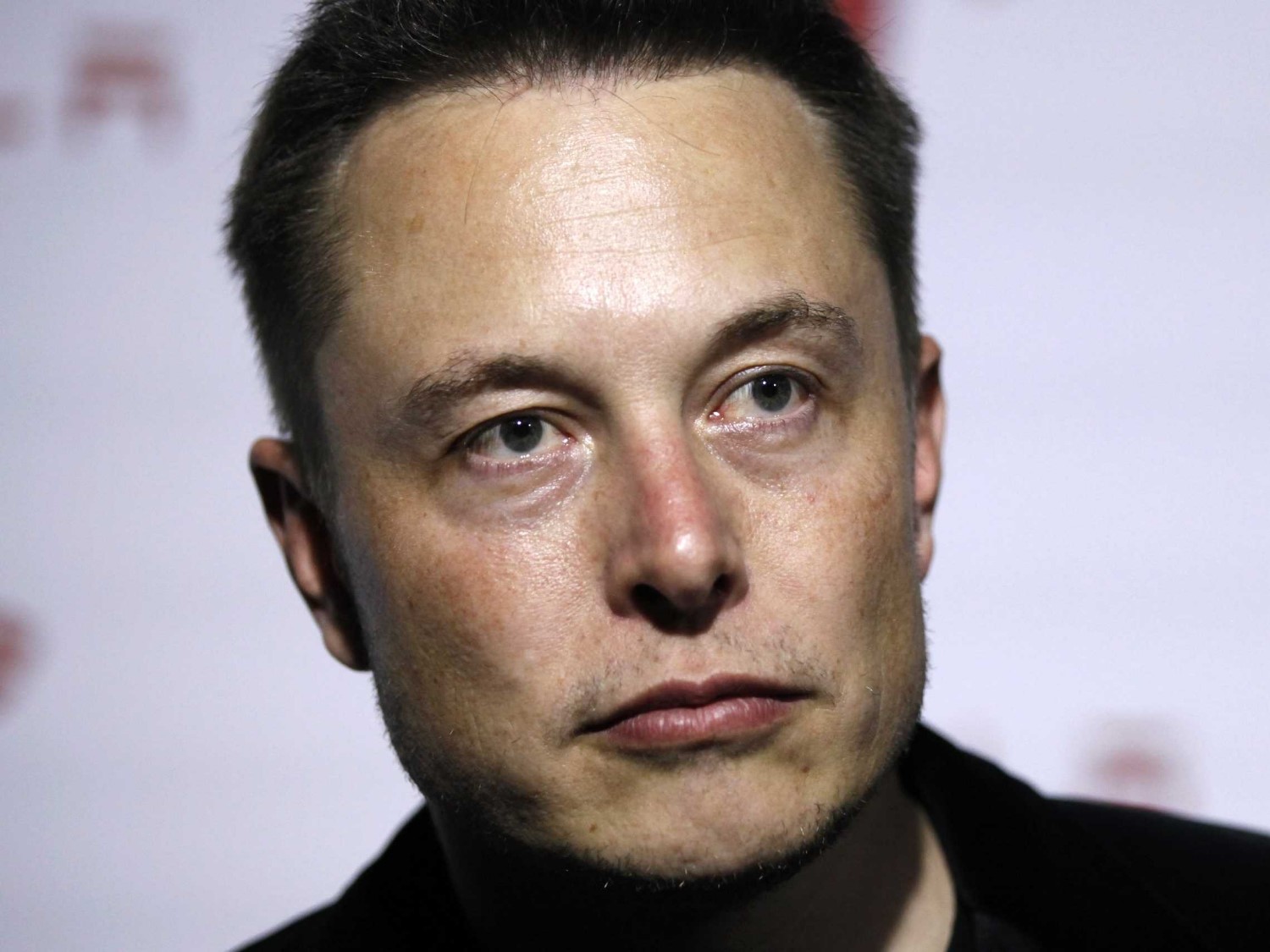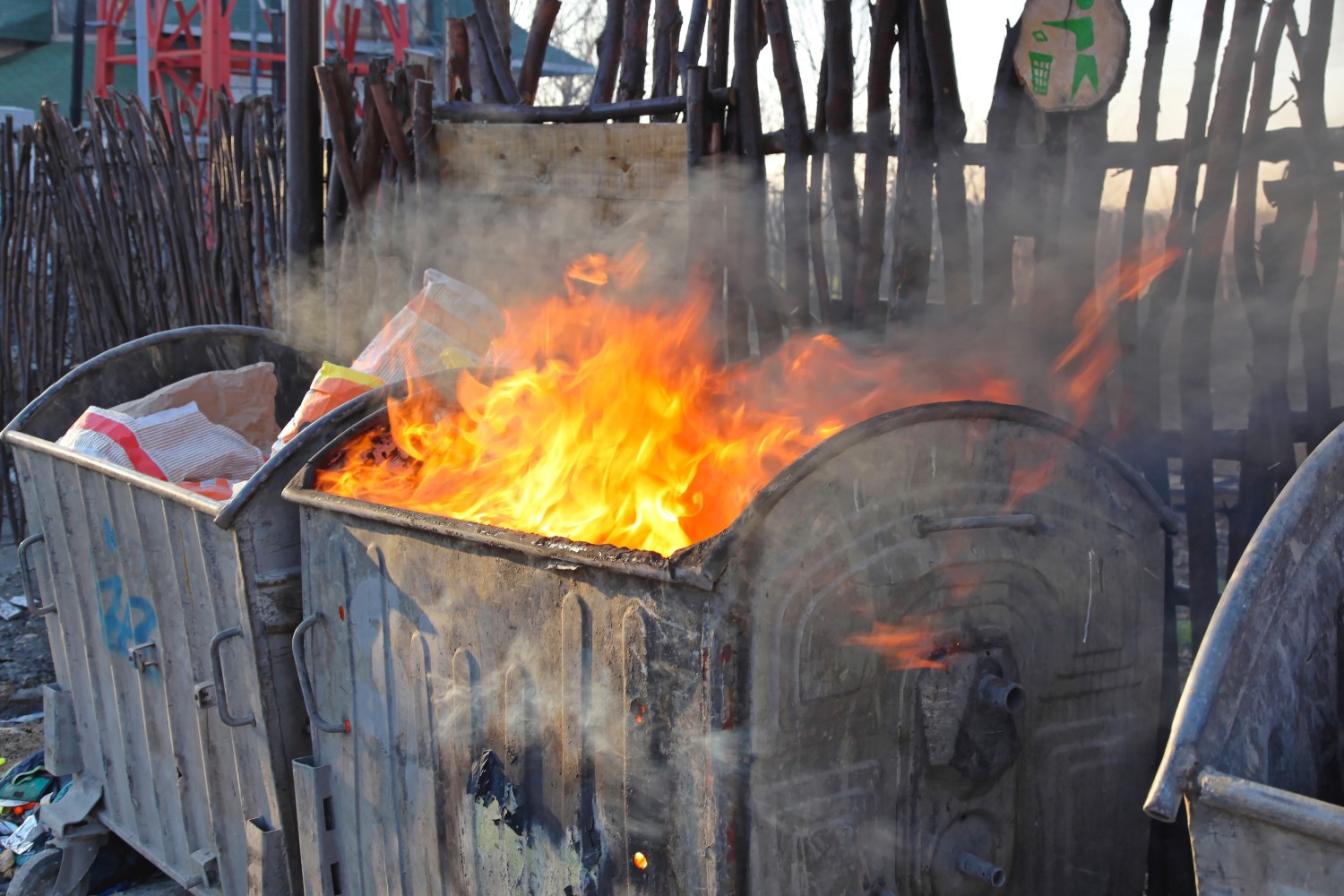Will Musk’s next move be lighter fluid on the Tesla Dumpster Fire? (Update)
 |
| Will Elon Musk make the rest of the auto industry look like idiots, or is he blowing smoke up everyone's posterior? |
UPDATE Michael Liedtke and Tom Krisher, AP write, Tesla CEO Elon Musk appears poised to transform the company’s electric cars into driverless vehicles in a risky bid to realize a bold vision that he has been floating for years.
The technology required to make that quantum leap is scheduled to be shown off to Tesla investors Monday at the company’s Palo Alto, California, headquarters.
Musk, known for his swagger as well as his smarts, is so certain that Tesla will win the race toward full autonomy that he indicated in an interview earlier this month that his company’s cars should be able to navigate congested highways and city streets without a human behind the wheel by no later than next year.
“I could be wrong, but it appears to be the case that Tesla is vastly ahead of everyone," Musk told Lex Fridman, a Massachusetts Institute of Technology research scientist specializing in autonomous vehicles.
But experts say they’re skeptical whether Tesla’s technology has advanced anywhere close to the point where its cars will be capable of being driven solely by a robot, without a human in position to take control if something goes awry.
“It’s all hype," said Steven E. Shladover, a retired research engineer at the University of California, Berkeley who has been involved in efforts to create autonomous driving for 45 years. “The technology does not exist to do what he is claiming. He doesn’t have it and neither does anybody else."
More than 60 companies in the U.S. alone are developing autonomous vehicles. Some are aiming to have their fully autonomous cars begin carrying passengers in small geographic areas as early as this year. Many experts don’t believe they’ll be in widespread use for a decade or more.
Musk’s description of Tesla’s controls as “Full Self-Driving" has alarmed some observers who think it will give owners a false sense of security and create potentially lethal situations in conditions that the autonomous cars can’t handle. They also say they’re waiting for Musk to define self-driving and show just under what conditions and places the vehicles can travel without human intervention, including specific data showing that they would be safer than human drivers and whether the system’s safety has been reviewed by outside groups or government agencies.
Meanwhile, Musk continues to use both his Twitter account and Tesla’s website to pump up a new computer now in production for full self-driving vehicles. Once the self-driving software is ready, those with new computers will get an update via the internet, Musk has said. Currently the self-driving computer costs $5,000, but the price rises to $7,000 if it’s installed after delivery.
Tesla vehicles equipped for full autonomy will rely on eight cameras that cover 360 degrees, front-facing radar and short-range ultrasonic sensors. It’s not known how many will have the full self-driving technology. There are about 400,000 Teslas on the road worldwide. More from Michael Liedtke and Tom Krisher, AP
 |
| Tesla is a dumpster fire right now and the hundreds of death's caused by Musk's next proposal could be the final nail in Tesla's coffin |
04/19/19 Demand for Tesla cars appears to have stalled. Stores are being closed. Inventory is piling up. Prices are being cut writes Russ Mitchell of the LA Times.
Panasonic, the company's closest business partner, abandoned plans to expand operations at Tesla's giant battery factory in Nevada unless car sales pick up.
Although Tesla posted consecutive quarterly profits late last year, Musk has prepared Wall Street for a loss when first-quarter 2019 earnings are announced April 24.
The controversial chief executive also faces contempt charges from the Securities and Exchange Commission. He had agreed to settle SEC stock fraud charges after tweeting falsely last August that he had the funding to take Tesla private. In the settlement, he agreed not to tweet material information about the company without prior vetting. A federal judge said the settlement could be clearer, ordering both sides to put on their "reasonable pants" and revise the agreement.
Amid the bad news, Tesla's volatile stock has fallen from a year-to-date high of $347.31 a share to 273.26 on Thursday, a 21% decline.
On Monday, Musk will attempt to shift the downbeat narrative from immediate challenges to new prospects for growth. Judging from his recent tweets, Musk will lay out a near-future vision in which money-generating self-driving Teslas compete with the likes of Lyft, Uber and Waymo.
The CEO has not yet offered a timeline for such a service. Although Tesla has been working on automated cars as long as anyone, it would have to start virtually from scratch in the intensely competitive robotaxi business.
The business could prove so lucrative, according to Musk's tweets, that Tesla cars would appreciate in value year after year. (Tesla critics were dubious on Twitter. According to Edmunds, a new car loses 15% to 25% of its value the moment it leaves the dealer lot, and continues to depreciate every year after.)
At the invitation-only event — called Investor Autonomy Day and set for 11 a.m. Monday at the company's Palo Alto headquarters — Musk is likely to detail currently sketchy plans to make Tesla the first company to offer widespread deployment of driverless cars on highways and city streets. Within months, Musk said, owners of most Teslas can have their cars refitted with a new computer board to enable full self-driving.
"Tesla will free investors from the tyranny of having to drive their own car," Musk tweeted this week. (Why "investors" and not "buyers" went unexplained.)
Rapid deployment of self-driving cars would buck current sentiment in the driverless-vehicle industry, which is attempting to tamp down expectations of widespread deployment of driverless cars anytime soon.
"We overestimated the arrival of autonomous vehicles," Ford Chief Executive Jim Hackett said in a recent speech.
Although Ford still plans to begin selling driverless vehicles as planned in 2021, they'll start out restricted to specific "geo-fenced" zones, beyond which human drivers would have to take the wheel. The "applications will be narrow … because the problem is so complex," he said.
Waymo, widely considered the industry's robot-car leader, had once planned to launch a commercial robot taxi service in Arizona by the end of last year. It did so, but so far has limited its use to a few hundred pre-selected customers.
General Motors' Cruise Automation planned to offer robot taxis in San Francisco in 2018, but those plans are on indefinite hold.
Musk, no surprise, takes the contrary view. He plans to put self-driving Teslas on the road as soon as possible.
He has said it would be immoral not to. He's claimed that the company's current Autopilot technology — which still requires an attentive human driver — has proved safer than Tesla cars driven without Autopilot engaged.
Professional statisticians from Rand and other research and academic institutions say it will take billions of miles — and corporate transparency — to prove whether robot cars are safer than humans.
That presents automotive and technology companies with a conundrum: They can't prove driverless cars are safer without putting the cars on public highways.
The proof will take years. Meanwhile, robot cars will crash and people will die. The media naturally will focus on robot-car accidents with far more intensity than on the dozens of other traffic deaths that occur every day.
In light of that, an industry organization has been created to grapple with how to educate the public about driverless cars. The group is called PAVE, for Partners for Automated Vehicle Education. Its members include Audi, Toyota, Waymo and dozens of other companies and organizations, including auto safety groups. Tesla is not a member of the group.
The group is concerned that crashes and deaths that are inevitable in wide-scale deployment could slow down development if the public is not convinced that the industry is doing all it can to keep such crashes to a minimum. There's big money at stake: Broadly defined, estimates for annual revenue in a new driverless-car industry are in the hundreds of billions of dollars per year.
Tesla's Autopilot has been involved in crashes in which drivers have been decapitated or burned to death. Whether that makes Autopilot more dangerous than human drivers can't yet be determined, but the stories pack emotional punch.
Although the industry is unwilling to directly confront Tesla's aggressive timetable for self-drive deployment, it's easy to read between the lines.
After Musk began tweeting about Tesla's robot car plans, Brad Stertz, who heads U.S. government affairs for Audi, tweeted: "Speaking for Audi … we are going to introduce this tech responsibly and not beta test on public roads. Some may call that old-school. I beg to differ."
Whether the autonomy event, and the earnings results to follow, will boost Tesla's flagging stock price will be clearer by the end of next week. Russ Mitchell, Los Angeles Times
